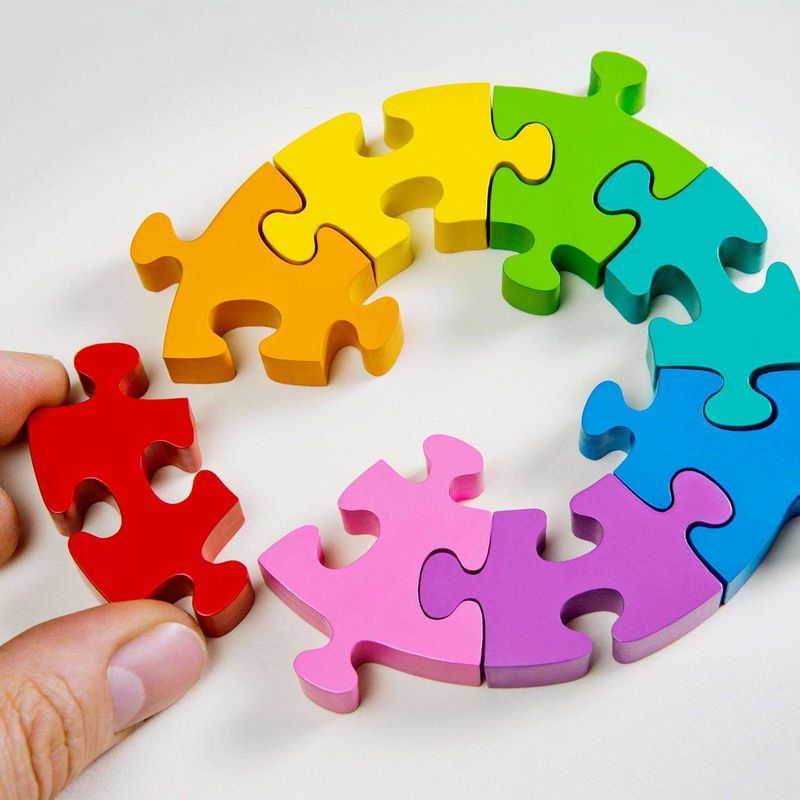Education is more than just formal schooling; it encompasses intellectual curiosity, emotional growth, and a willingness to embrace diverse knowledge. This blog post explores 20 signs that may indicate a lack of education, highlighting habits and mindsets that go beyond the confines of a classroom.
1. They dismiss facts they don’t understand
A common trait among those lacking education is the dismissal of facts that don’t align with their preconceptions. This behavior often stems from a discomfort with complexity. Ignoring proven information can lead to misguided beliefs and decisions.
When faced with new evidence, a poorly educated individual might refuse to engage, preferring to stick to what they think they know. This unwillingness to explore new information can hinder personal growth.
Instead of embracing the opportunity to learn, they reject it outright. This mindset creates a barrier to understanding the world in a more nuanced way, leaving them stuck in a cycle of misinformation.
2. They mock people for asking questions
Mockery of curiosity signals a lack of understanding. When individuals ridicule others for seeking knowledge, they reveal their own insecurity. Such actions discourage open dialogue and create a hostile learning environment.
Instead of fostering a culture of inquiry, these individuals stifle it, preventing growth and understanding. Laughing at questions is a way to deflect from their own ignorance.
By promoting disdain for curiosity, they miss out on the joy of discovery and the richness of diverse perspectives. A supportive environment encourages questions, leading to a deeper comprehension of complex issues.
3. They refuse to admit when they’re wrong
Admitting mistakes is a sign of strength and maturity, yet some resist it. This refusal often highlights an insecurity about their own knowledge. Accepting errors is a crucial step in learning and personal development.
Apologizing or acknowledging a mistake can lead to growth and better understanding. Those who cannot do this remain stagnant, unable to move beyond their initial viewpoints.
A poorly educated person might see admitting wrongs as a weakness, rather than an opportunity for improvement. This mindset keeps them from evolving intellectually and emotionally.
4. They rely on gossip as truth
Relying on gossip as a primary source of information is a telltale sign of poor education. Gossip often lacks credibility, leading to the spread of misinformation. This behavior shows a preference for sensationalism over facts.
By accepting gossip without question, individuals reveal a lack of critical thinking skills. They might repeat hearsay, creating a cycle of uninformed opinions.
Seeking reliable sources is essential for an accurate understanding of the world. Those who fail to do so remain trapped in a web of half-truths and misconceptions.
5. They reject new ideas without considering them
Rejection of fresh ideas without contemplation is a hallmark of a closed mind. This behavior often stems from an entrenched comfort with existing beliefs, leading to stagnation.
By refusing to entertain novel concepts, poorly educated individuals miss opportunities for growth and innovation. Openness to new ideas is essential for progress and understanding.
Instead of exploring possibilities, they choose to remain rooted in familiarity. This resistance to change hinders personal and intellectual development.
6. They assume education only happens in school
Assuming that education is confined to formal schooling shows a limited understanding of learning. True education encompasses a lifelong pursuit of knowledge, extending beyond the classroom.
This narrow view disregards the value of experiential learning, self-study, and informal education opportunities. It limits personal growth and adaptability in a rapidly changing world.
Those who embrace diverse learning experiences gain a richer and more nuanced understanding of life. This breadth of knowledge fosters creativity and adaptability.
7. They use insults instead of reason in arguments
Resorting to insults in place of reasoned arguments reveals a lack of persuasive skills. This approach often indicates an inability to engage with ideas critically and constructively.
Such behavior undermines productive discourse, creating conflict rather than understanding. It reflects an insecurity in one’s own viewpoints.
Engaging with ideas thoughtfully encourages growth, while insults stifle it. A well-reasoned argument fosters mutual respect and deeper comprehension.
8. They avoid reading or learning for fun
Avoidance of reading or learning for enjoyment highlights a lack of curiosity. This attitude suggests a preference for passive consumption over active engagement with the world.
Reading opens doors to new experiences and perspectives, enriching the mind and soul. Those who shun this activity miss out on the joy and knowledge it brings.
Encouraging a love of reading fosters intellectual growth and emotional well-being. It is a gateway to lifelong learning and exploration.
9. They oversimplify complex issues
Oversimplification of complex issues often signals a lack of understanding. Reducing intricate matters to simplistic terms prevents meaningful engagement and solutions.
This approach can lead to misguided beliefs and decisions, as nuanced insights are overlooked. Poorly educated individuals may choose simplicity over accuracy for convenience.
Embracing complexity encourages critical thinking and informed decision-making. It fosters a deeper appreciation of the world’s richness and diversity.
10. They brag about “common sense” while lacking it
Boasting about common sense without demonstrating it reveals a disconnect. True common sense involves sound judgment and practicality, qualities often lacking in those with limited education.
This behavior often masks insecurity, as individuals cling to perceived wisdom without understanding. It can lead to poor decision-making and missed opportunities.
Genuine common sense requires humility and openness to learning. Those who cultivate it navigate life’s challenges with grace and insight.
11. They can’t explain their opinions with evidence
Inability to support opinions with evidence reflects a superficial understanding. This gap hinders meaningful dialogue and progress, as ideas remain unsubstantiated.
Without evidence, opinions can become mere assertions, lacking credibility. Poorly educated individuals may rely on emotion rather than logic to convince others.
Constructing arguments with evidence fosters respect and understanding. It encourages a culture of inquiry and intellectual exchange.
12. They resist growth and personal development
Resistance to growth and personal development signifies a stagnant mindset. This reluctance often stems from fear of change or failure, inhibiting progress.
Embracing personal development requires courage and a willingness to explore new paths. It enriches life, fostering resilience and adaptability.
Those who resist remain confined within their limitations. Growth is an ongoing journey, essential for a fulfilling and successful life.
13. They misquote or misuse basic concepts
Misquoting or misusing basic concepts showcases a lack of foundational understanding. This behavior can perpetuate misinformation and confusion.
It often stems from an unexamined acceptance of ideas without verification. Poorly educated individuals may repeat misunderstood concepts without questioning them.
Building a solid knowledge base requires diligence and curiosity. It enables clear communication and accurate comprehension.
14. They think curiosity is a waste of time
Viewing curiosity as a waste of time undermines learning and innovation. Curiosity drives discovery, leading to new insights and opportunities.
Those who dismiss it miss out on the excitement of exploration and growth. It reflects a limited worldview, confined by apathy and routine.
Cultivating curiosity inspires creativity and resilience. It enriches life, revealing endless possibilities and connections.
15. They equate loudness with being right
Confusing volume with correctness signals a misunderstanding of effective communication. Loudness often masks insecurity and a lack of confidence in one’s arguments.
This approach can stifle dialogue, creating division rather than understanding. It reflects an inability to engage thoughtfully with differing perspectives.
True persuasion requires clarity and respect. By listening and articulating ideas calmly, individuals foster mutual understanding and cooperation.
16. They see no value in listening to others’ views
Refusing to listen to others’ views is a barrier to empathy and understanding. This behavior often reveals a closed mind, unwilling to consider diverse perspectives.
Listening is a skill that fosters connection and learning. It broadens horizons and enriches relationships.
By valuing different viewpoints, individuals cultivate empathy and wisdom. It enhances personal and communal growth, creating a more inclusive and harmonious society.
17. They dismiss history as irrelevant to today
Dismissing history as irrelevant overlooks its lessons and insights. History provides context and understanding, guiding present decisions and future directions.
Those who neglect it risk repeating past mistakes, blind to patterns and wisdom. It reflects a narrow focus on the present, detached from a broader narrative.
Embracing history enriches understanding and decision-making. It connects past, present, and future, revealing enduring truths and challenges.
18. They lack basic financial or health literacy
Lacking financial or health literacy can lead to poor decisions and insecurity. Knowledge in these areas is essential for a stable and healthy life.
Without it, individuals may face challenges in managing resources and well-being. It underscores the importance of practical education and informed choices.
Empowering oneself with financial and health knowledge fosters independence and confidence. It enables informed decisions, enhancing quality of life.
19. They rely on stereotypes to form opinions
Relying on stereotypes reveals a superficial understanding of people and cultures. It often leads to prejudice and division, hindering empathy and connection.
This approach ignores the complexity and individuality within groups. Poorly educated individuals may use stereotypes as shortcuts, avoiding deeper engagement.
Overcoming stereotypes requires openness and curiosity. It fosters understanding and respect, building bridges across differences.
20. They criticize what they don’t understand
Criticizing without understanding highlights a lack of curiosity and empathy. It reflects a reluctance to explore unfamiliar ideas and experiences.
This behavior can lead to narrow-mindedness, limiting personal and intellectual growth. It often stems from insecurity or fear of the unknown.
Embracing the unfamiliar enriches understanding and creativity. It encourages exploration and appreciation of diverse perspectives and ideas.





















